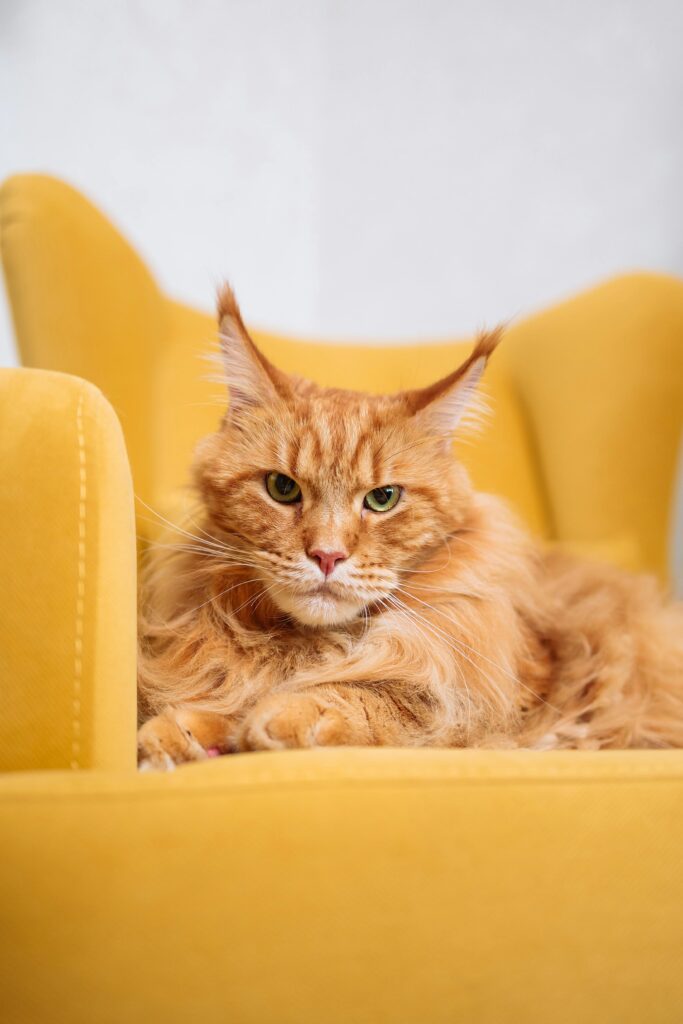
Orange Maine Coon: Genetics, Personality, and Where to Find Kittens for Sale
If you’re searching for an orange Maine Coon, you’re not alone. These fiery-coated cats are some of the most recognizable and beloved members of the breed. Known for their lion-like manes, friendly personalities, and massive size, Maine Coons are already impressive—but when you add the brilliant orange coat, they stand out even more. In this guide, we’ll explore everything you need to know about orange Maine Coons: their history, why most orange cats are male, whether females can be orange, genetics behind their coloring, and how to find orange Maine Coon kittens for sale.
The Appeal of the Orange Maine Coon
Maine Coons are already called “gentle giants,” but an orange Maine Coon looks like a living lion. Their coats range from pale cream to deep, fiery red. Many buyers specifically search for orange Maine Coon kittens for sale because this coloring is both rare and iconic.
Owners often describe their orange cats as especially playful, confident, and full of personality. While coat color doesn’t guarantee temperament, orange Maine Coons have become legendary for their bold look and affectionate nature. Their are a lot of different breeds of cats that can be orange, but the Maine Coon is a popular favorite.
Why Are Most Orange Cats Male?
One of the most fascinating facts about orange Maine Coons is that the vast majority are male. Around 80% of all orange cats are male, no matter the breed. This statistic holds true for Maine Coons as well.
The Genetics Behind Orange Cats
- The gene responsible for orange coloring is carried on the X chromosome.
- Male cats have one X and one Y chromosome (XY). If their single X carries the orange gene, they will be orange.
- Female cats have two X chromosomes (XX). To be orange, they must inherit the orange gene on both X chromosomes.
This explains why male orange Maine Coons are much more common—you only need one gene copy for a male, but two for a female.
Most orange Maine Coon Cats carry the Tabby gene. Which is a dominant gene that gives the striped marking in cats.
Can Female Maine Coons Be Orange?
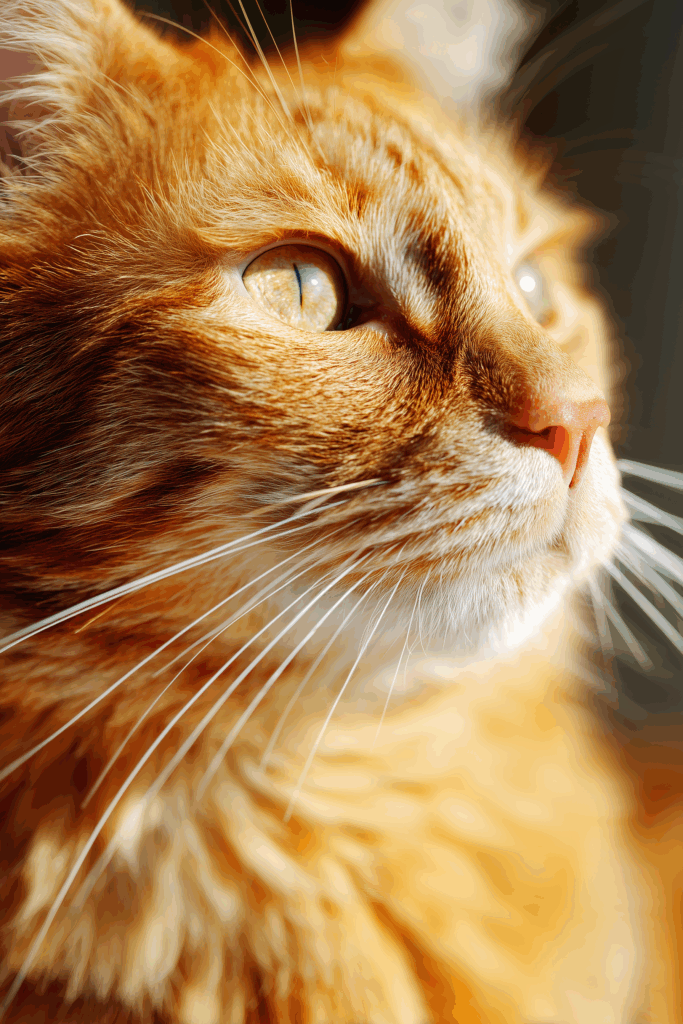
Yes, but they are far less common. Female orange Maine Coons exist when both parents contribute the orange gene. Breeders who specialize in orange Maine Coons may produce females, but it’s always a smaller percentage compared to males.
If a female inherits one orange gene and one non-orange gene, she won’t be fully orange. Instead, she’ll be a tortoiseshell or calico with patches of orange mixed with black or cream.
That’s why when you see a listing for female orange Maine Coon kittens for sale, it’s especially rare and often more expensive.
Shades of the Orange Maine Coon
The Cat Fanciers’ Association (CFA) and The International Cat Association (TICA) recognize multiple shades of orange (technically classified as red in pedigrees).
Accepted Orange Variations:
- Solid Red (Orange): A deep, uniform orange coat.
- Red Tabby: Classic, mackerel, or ticked tabby patterns with orange striping.
- Cream: A diluted version of orange, appearing soft and pale.
- Red Silver Tabby: A mix of orange and silver for a fiery but frosted appearance.
When searching for orange Maine Coon kittens for sale, you’ll see many described as red tabby or cream because pure solid orange is less common.
Personality of the Orange Maine Coon
Maine Coons are known for being loyal, playful, and dog-like in behavior. Orange Maine Coons, in particular, often get a reputation for being outgoing and mischievous.
Traits You Can Expect:
- Sociable: They love human company and usually enjoy meeting strangers.
- Playful: Orange Maine Coons often remain kitten-like into adulthood.
- Affectionate: Many bond strongly with their owners, following them from room to room.
- Vocal: Maine Coons communicate with trills and chirps more than typical meows.
Here are some additional fun facts about orange cats and their personalities.
Orange Maine Coon Size and Growth
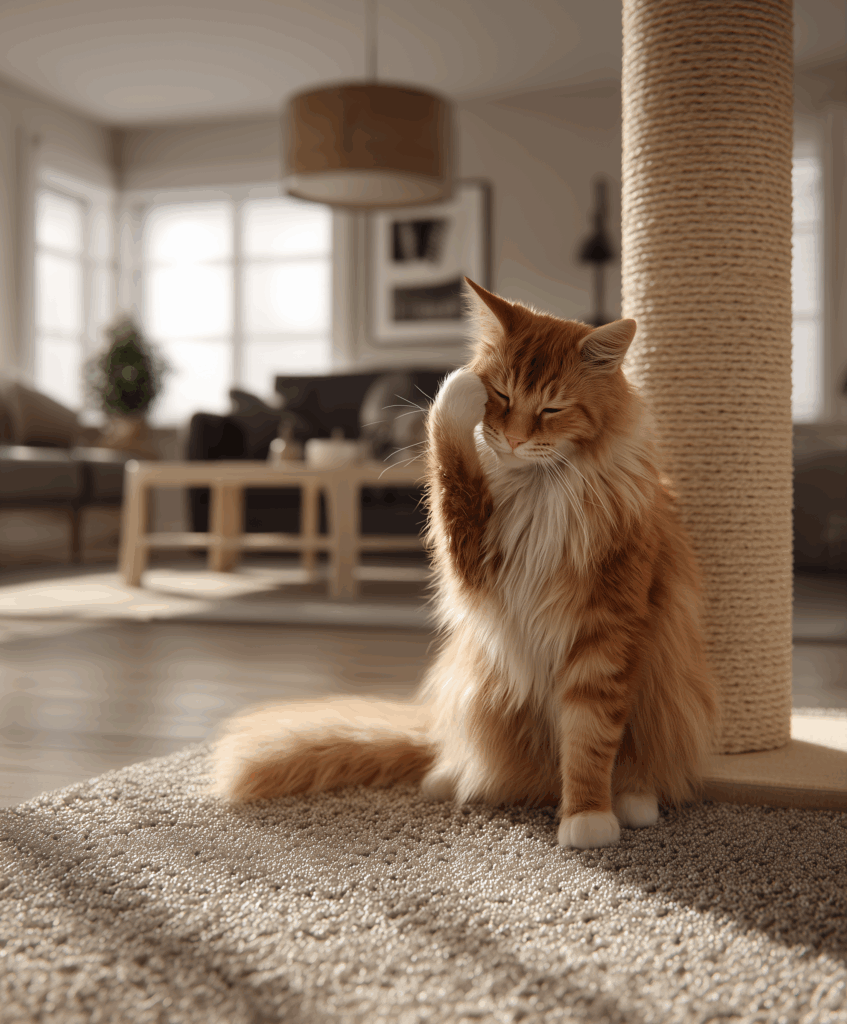
Orange Maine Coons grow just as large as other Maine Coons, often reaching 15–25 pounds for males and 12–18 pounds for females. Their bold color sometimes makes them look even bigger.
- Kittens: Born small, but with big paws hinting at their adult size.
- Adolescence: Rapid growth between 6–18 months.
- Full Grown: Most reach maturity between 3–5 years.
Health Considerations for Orange Maine Coons
Maine Coons are generally hardy, but they are predisposed to certain conditions:
- Hypertrophic Cardiomyopathy (HCM): The most common inherited heart disease in cats.
- Hip Dysplasia: More common in large breeds.
- Polycystic Kidney Disease (PKD): Less common but possible.
When looking for orange Maine Coon kittens for sale, ask breeders for health testing results. Reputable breeders screen for HCM and hip dysplasia.
Finding Orange Maine Coon Kittens for Sale
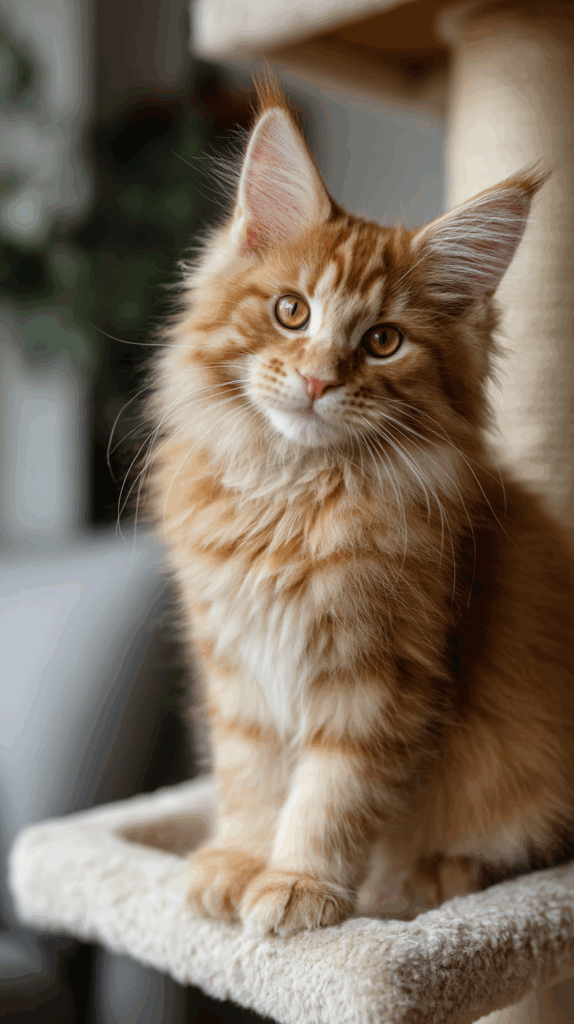
The demand for orange Maine Coons is high, so buyers often face long waitlists. When searching, keep the following in mind:
- Start with Registered Breeders
Look for breeders listed with CFA or TICA who provide pedigree and health testing. - Ask About Coat Colors in Litters
Since orange is sex-linked, ask breeders what coat colors the parents typically produce. - Expect to Pay More for Rare Colors
While the average Maine Coon kitten costs $2,000–$4,000, orange Maine Coon kittens for sale may reach $4,500–$6,000 depending on demand. - Beware of Scams
Scammers target buyers searching for rare colors. Never send money without verifying the breeder. Look for video calls, contracts, and references.
Cost of Orange Maine Coon Kittens
| Type of Maine Coon | Average Price Range | Notes |
|---|---|---|
| Standard Maine Coon | $3,500–$6,500 | Most common colors (brown tabby, black, etc.) |
| Orange Maine Coon (Male) | $4,000–$6,500 | Easier to find than females |
| Orange Maine Coon (Female) | $5,000–$7,000 | Rare due to genetics |
| Show-Quality Orange Maine Coon | $5,000–$8,000 | Full rights and show potential |
Orange Maine Coon Rescue and Adoption
If you can’t find orange Maine Coon kittens for sale from a breeder, adoption is another path. Maine Coons or Maine Coon mixes sometimes appear in rescues. Since orange is such a dominant color, it’s possible to find orange Maine Coon mixes needing homes.
Check breed-specific rescues like Maine Coon Rescue or regional shelters.
Are Orange Maine Coons Hypoallergenic?
No, Maine Coons—including orange Maine Coons—are not hypoallergenic. They produce the same allergen proteins (Fel d 1) as other cats. However, some allergy sufferers find they react less to Maine Coons because of their grooming habits and coat texture.
FAQs About Orange Maine Coons
Are all orange Maine Coons male?
No, but about 80% of them are. Females require both parents to pass the orange gene.
Can Maine Coons be solid orange?
Yes, but most are orange tabby. Solid orange is rare.
Do orange Maine Coons cost more?
Yes, especially females, because the coloring is less common.
Are orange Maine Coons friendlier than other colors?
While temperament is individual, many owners describe orange cats as especially outgoing.
Where can I find orange Maine Coon kittens for sale?
Start with CFA or TICA registered breeders, but expect waitlists.
History of the Orange Maine Coon
Maine Coons are one of the oldest natural cat breeds in North America, with roots tracing back to 19th-century New England. Farmers valued them for their size, hunting ability, and weather-resistant coats. Orange Maine Coons, though not the most common, have been admired since those early days. Their coloring often drew comparisons to foxes and lions, making them stand out among the traditional brown tabbies.
In cat shows from the late 1800s, orange and red tabby Maine Coons were recognized as flashy showpieces. Even today, many people searching for orange Maine Coon kittens for sale are motivated by the breed’s heritage as well as its striking look.
A Deeper Look at Genetics
We touched on how orange coloring is linked to the X chromosome, but let’s go deeper into the science:
- The orange gene (O) replaces black pigment (eumelanin) with red pigment (pheomelanin).
- A male cat with genotype O/Y will always be orange.
- A female must be O/O (orange on both X chromosomes) to be orange.
- If she is O/o, she will show as a tortoiseshell (patches of orange and black).
This is why when breeders are planning litters, they can often predict the likelihood of orange kittens based on the parents’ genetics. For example:
- Orange male + orange female = 100% orange kittens.
- Orange male + non-orange female = 50% orange kittens (all males).
- Non-orange male + orange female = 50% orange kittens (both sexes possible).
This complexity is part of the reason why finding female orange Maine Coons for sale is such a rare treat.
Myths About Orange Maine Coons
Like many distinctive cats, orange Maine Coons come with a few myths:
- “All orange cats are male.”
Not true—most are, but females do exist when they inherit the orange gene from both parents. - “Orange Maine Coons are always friendlier.”
Coat color doesn’t determine personality, but many orange cats are described as bold and outgoing, leading to this perception. - “Solid orange is the same as red tabby.”
In reality, most “solid” oranges still show faint tabby markings because the tabby gene is nearly universal in cats.
Grooming Needs of the Orange Maine Coon
An orange Maine Coon’s coat can be medium to long, with a thick ruff around the neck and tufted paws. To keep it in top condition, owners should commit to regular grooming:
- Brushing: 2–3 times per week to prevent mats, especially in the mane and undercoat.
- Bathing: Not required often, but some owners bathe their Maine Coons every few months. Their water-resistant coat can make bathing more challenging.
- Seasonal Shedding: Expect heavy shedding in spring and fall.
Since orange fur is light and sheds visibly on clothing and furniture, grooming also helps keep the home cleaner. Do Maine Coon Cats Shed? Yes they do, and here is how you can manage it.
Training and Behavior
Maine Coons are often described as “dog-like,” and orange Maine Coons are no exception. They can be trained to:
- Walk on a leash with a harness.
- Play fetch, especially males who retain kittenish energy.
- Learn commands like sit, come, and even paw.
Their playful personalities make training fun, but consistency and positive reinforcement are key.
Breeding for Orange Maine Coons
For breeders, producing orange Maine Coons requires a careful understanding of genetics. Because the orange gene is sex-linked, pairing an orange male with a female carrying orange is the most reliable way to produce orange kittens. More about Popular Maine Coon Kitten Colors.
Some breeders specialize in certain color lines, and those with strong red or cream lines may consistently offer orange Maine Coon kittens for sale. However, ethical breeders prioritize health and temperament before coat color, so availability is always limited.
Orange Maine Coon vs. Other Colors
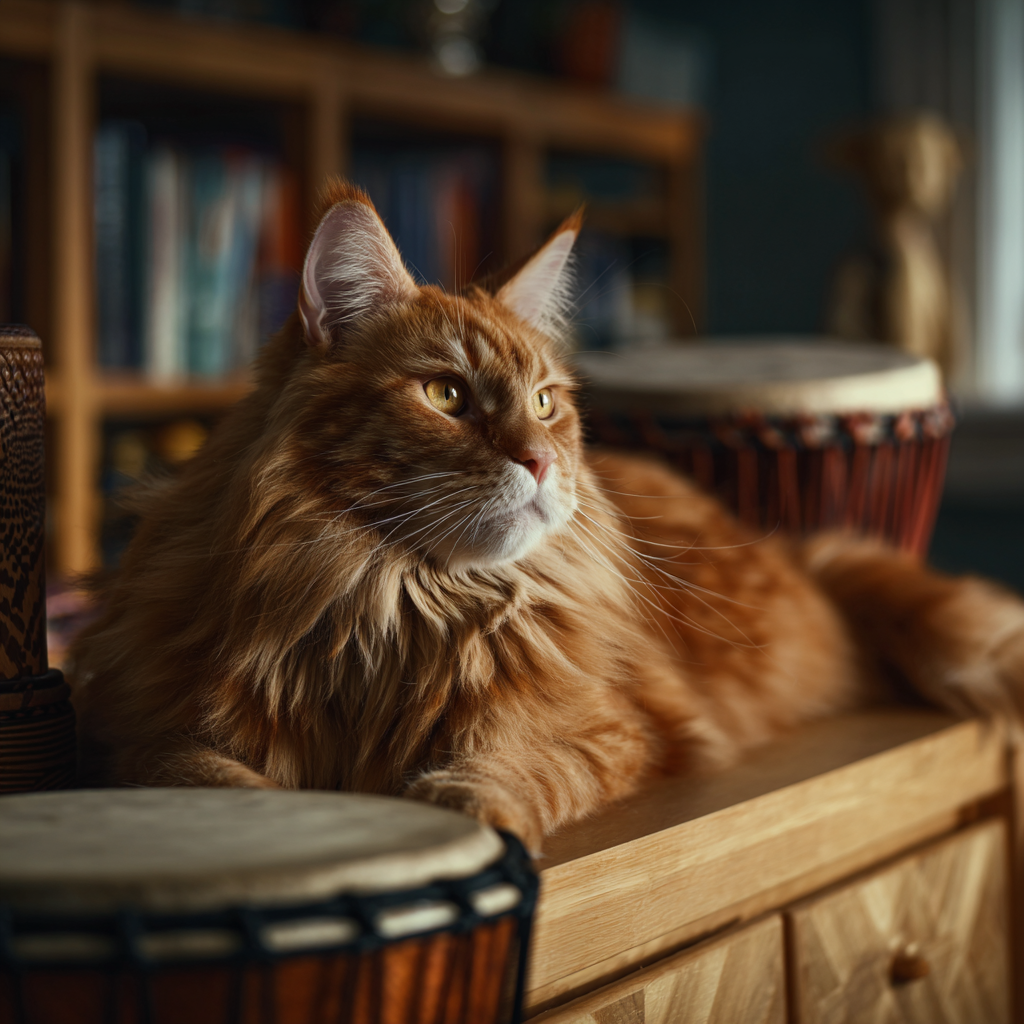
How does the orange Maine Coon compare to other popular coat colors?
- Brown Tabby Maine Coon: The most iconic and common. Orange is rarer and often more expensive.
- Black Maine Coon: Sleek and panther-like, but doesn’t carry the same “lion-like” appearance as orange.
- White Maine Coon: Striking, but requires extra care for sun sensitivity.
- Cream Maine Coon: A diluted form of orange, softer in tone, sometimes confused with light orange.
While every color has its charm, orange Maine Coons remain a favorite for those wanting a bold, standout look. Read about Black Maine Coon Cats here.
Lifespan and Care
Maine Coons typically live 12–15 years, with some reaching 18–20 years when cared for properly. Diet and exercise play a big role in longevity.
Tips for caring for your orange Maine Coon:
- High-quality diet: Protein-rich food keeps muscle mass on these large cats.
- Regular vet visits: Annual exams help catch heart and joint issues early.
- Exercise: Encourage climbing and play to prevent obesity.
Cost Breakdown of Ownership
Beyond the purchase price of an orange Maine Coon kitten for sale, consider the long-term costs:
| Expense | Estimated Annual Cost | Notes |
|---|---|---|
| Food | $600–$1,000 | High-quality, large-breed formulas |
| Vet Care | $300–$800 | Routine care, not including emergencies |
| Grooming Supplies | $100–$200 | Brushes, shampoos |
| Toys & Enrichment | $100–$300 | Puzzle feeders, scratching posts |
| Insurance | $400–$600 | Helps with health issues like HCM |
Owning a Maine Coon Cat of any color is a long-term investment, but one many cat lovers happily make.
Should You Get an Orange Maine Coon?
Before you decide to bring one home, ask yourself:
- Do you have time for grooming?
- Can you handle a 15–25 pound cat that may want to sleep in your bed?
- Are you prepared for higher costs if you want a rare female orange Maine Coon?
If the answer is yes, then a Maine Coon could be your dream cat. They are playful, loving and mischievous. Learn more about our Available Maine Coon Kittens here.
Orange Maine Coon Life Expectancy
One of the most common questions from potential owners is: What is the life expectancy of an orange Maine Coon?
Like all Maine Coons, the orange Maine Coon life expectancy averages 12–15 years, with some living even longer under excellent care. Genetics, diet, exercise, and preventive veterinary care play a huge role. Cats from breeders who screen for heart disease and hip dysplasia often live longer, healthier lives.
While coat color does not directly affect lifespan, orange Maine Coons sometimes appear healthier in pedigree lines because breeders tend to carefully preserve these rarer colors. This means that if you are buying from a trusted breeder, an orange Maine Coon may be just as robust—or even hardier—than other color varieties.
Read more about cat life expectancies here.
Orange Maine Coon Shorthair: Does It Exist?
Many buyers ask if there is such a thing as an orange Maine Coon shorthair. Strictly speaking, a true Maine Coon will always have a medium-to-long coat, with the signature mane, tufted paws, and bushy tail. A “shorthair Maine Coon” does not exist according to breed standards.
However, in shelters, you may see cats advertised as orange Maine Coon shorthair mixes. These are often domestic shorthairs with some Maine Coon ancestry, giving them the large build or ear tufts without the full long coat. While they may not meet pedigree standards, they can still make affectionate, Maine Coon-like companions.
Full Grown Orange Maine Coon Size
The size of a full grown orange Maine Coon is one of the biggest draws for cat lovers. These cats are truly massive compared to most breeds.
- Males: 15–25 pounds on average, some reaching 30 pounds without being overweight.
- Females: 12–18 pounds, still significantly larger than the average housecat.
- Length: Many orange Maine Coons measure 40 inches from nose to tail tip.
The orange coat makes them appear even larger and more lion-like. If you are considering an orange Maine Coon kitten, be prepared for a cat that grows slowly but steadily, often not reaching full size until 3–5 years old.
Orange Maine Coon Mix Cats
Not everyone needs a purebred to enjoy the charm of this color. An orange Maine Coon mix is often available through shelters or backyard breeding situations.
What you can expect in an orange Maine Coon mix:
- Size: They may be smaller than a purebred but still larger than the average cat.
- Coat: A mix may have a shorter coat, less pronounced mane, or reduced ear tufts.
- Personality: Many mixes retain the affectionate, playful Maine Coon personality.
For families looking for a more affordable option, an orange Maine Coon mix can be a wonderful compromise, often available through adoption instead of a breeder.
Orange Maine Coon for Adoption
Because demand for rare colors is high, you might assume that you can never find an orange Maine Coon for adoption. While it’s less common, it does happen.
Tips for adopting an orange Maine Coon:
- Check breed-specific rescues – Maine Coon Rescue (U.S.) and similar organizations sometimes list orange or red tabby Maine Coons.
- Search shelters for “Maine Coon mix” – Many shelters mislabel cats, and an orange longhair mix could very well be part Maine Coon.
- Set alerts – Sites like Petfinder allow you to create saved searches for “orange Maine Coon.”
Adopting saves lives and can be a more affordable path for those who want the look and personality without the high breeder cost.
Can an Orange Cat Be a Maine Coon?
A frequent question is: Can an orange cat be a Maine Coon? The answer is yes—if the cat meets the breed’s physical traits and pedigree.
Maine Coons come in nearly every recognized cat color except pointed (like Siamese), so orange (registered as red) is well within the standard. The orange coat does not disqualify a cat from being a Maine Coon.
However, not every orange longhair is a Maine Coon. True Maine Coons will have:
- Tufted ears
- Large size and bone structure
- Long, flowing tail
- Sociable personality
- Pedigree papers if from a breeder
So yes, an orange cat can be a Maine Coon, but not every orange fluffy cat qualifies.
How Rare Is a Female Orange Maine Coon?
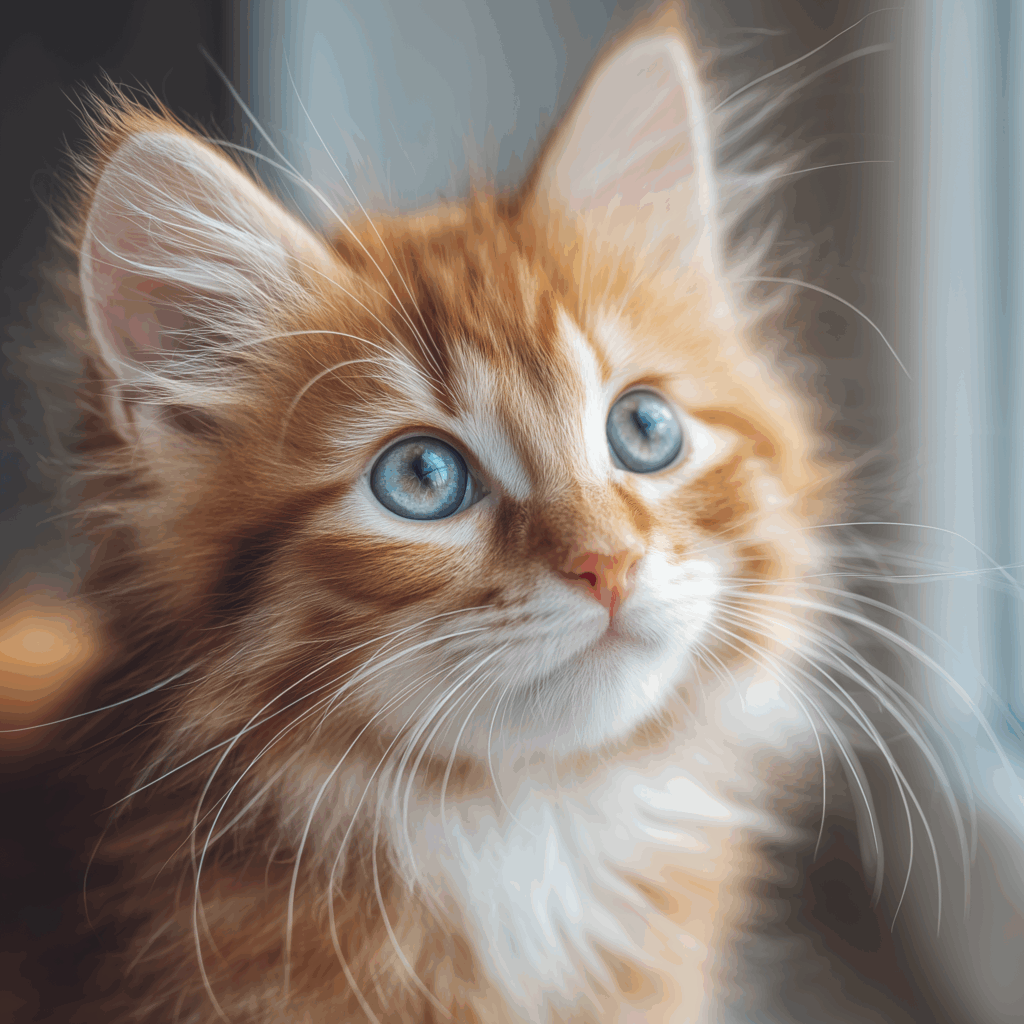
Since orange coloring is sex-linked, female orange Maine Coons are rare. Some breeders estimate only 1 in 5 orange Maine Coons is female. When they do appear, they are often reserved quickly, and some breeders may keep them for future breeding programs.
If you’re looking specifically for a female orange Maine Coon kitten, expect to:
- Join breeder waitlists early.
- Pay higher prices (sometimes $1,000–$2,000 more).
- Be patient, as only certain pairings reliably produce orange females.
Feeding and Nutrition for Orange Maine Coons
Because of their size, a full grown Maine Coon Cat has different dietary needs than smaller cats. They require a diet rich in animal protein, with controlled portions to prevent obesity.
- Kittens: High-calorie kitten food until 12–15 months.
- Adults: Balanced protein and fat with taurine-rich formulas.
- Seniors: Lower calories but high in joint-support supplements like glucosamine.
Owners should avoid free-feeding to keep weight under control. Read more about Maine Coon Cats in our Complete Guide to Maine Coons here.
Orange Maine Coon Temperament in Families
Families often wonder if an orange Maine Coon will fit into homes with children or dogs. The answer is usually yes. These cats are:
- Playful with kids – Their patient nature makes them tolerant.
- Dog-friendly – Many live peacefully with canine companions.
- Gentle giants – Despite their size, they are rarely aggressive.
This makes them a top choice for families looking for a cat that is both beautiful and easy to integrate. Learn more about why people love their temperament here.
Cost of Orange Maine Coon Mix vs. Purebred
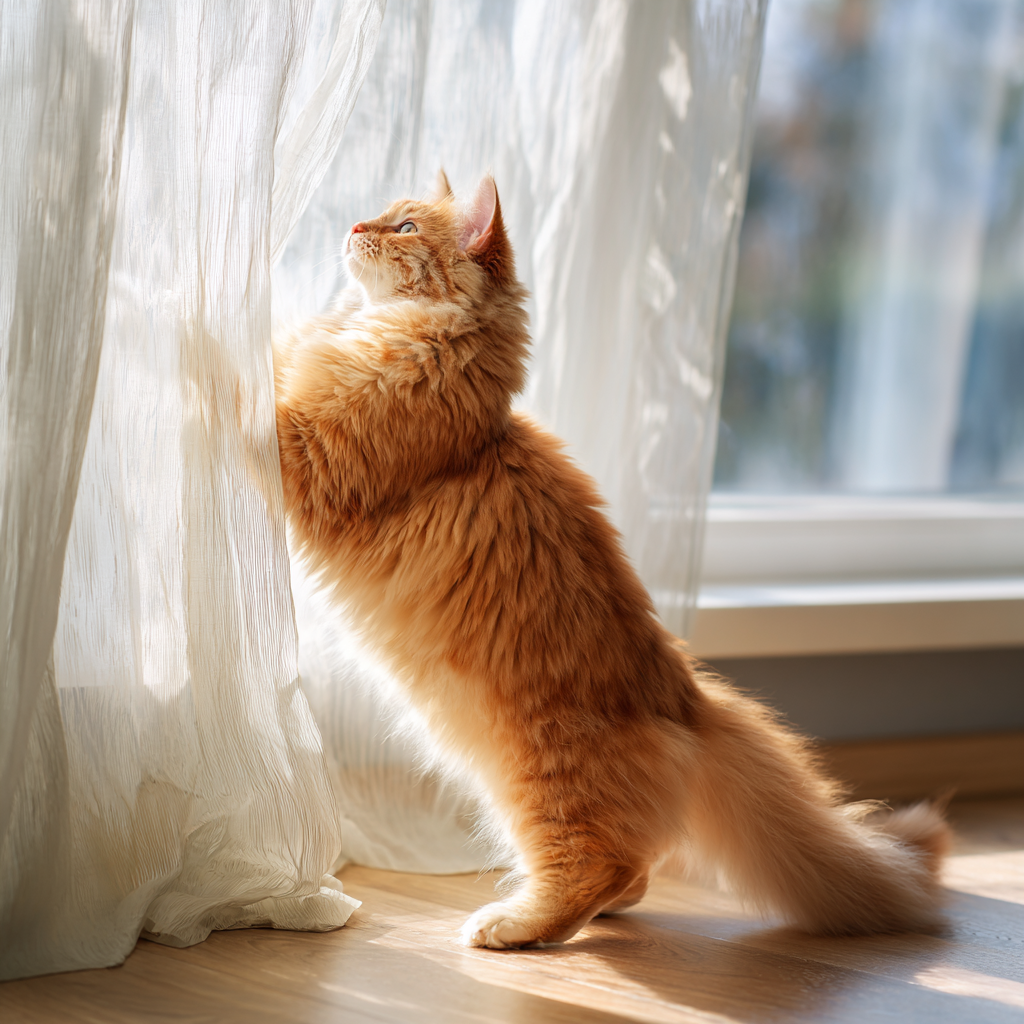
If you’re torn between a purebred and an orange Maine Coon mix, cost may be the deciding factor.
- Purebred orange Maine Coon kittens for sale: $3,000–$6,000 depending on rarity.
- Orange Maine Coon mix adoption fee: $100–$400 at shelters or rescues.
While a purebred guarantees size and pedigree, a mix can still bring much of the same personality at a fraction of the cost.
Final Thoughts
If you are looking for an orange cat, and still want the luxury experience of a purebred cat, a maine coon might be exactly what you need.
If you’re serious about adding one to your family, prepare for a waitlist, higher prices, and plenty of patience—but the reward is a cat that looks like a miniature lion and acts like your best friend.
Want more info?
Looking for a Maine Coon kitten? Fill out our Kitten application here.
Still exploring the Maine Coon Breed? Dive deeper into our breed guides and resources:
- How Much is a Maine Coon Kitten in 2025?
- How to Spot Cat and Kitten Scams Online
- Are Maine Coon Cats Hypoallergenic?
- Coon Kittens in Maine
- How to Reserve Your Almonte Kitten
Each post is packed with facts, tips, and advice to help you choose the perfect kitten for your family.
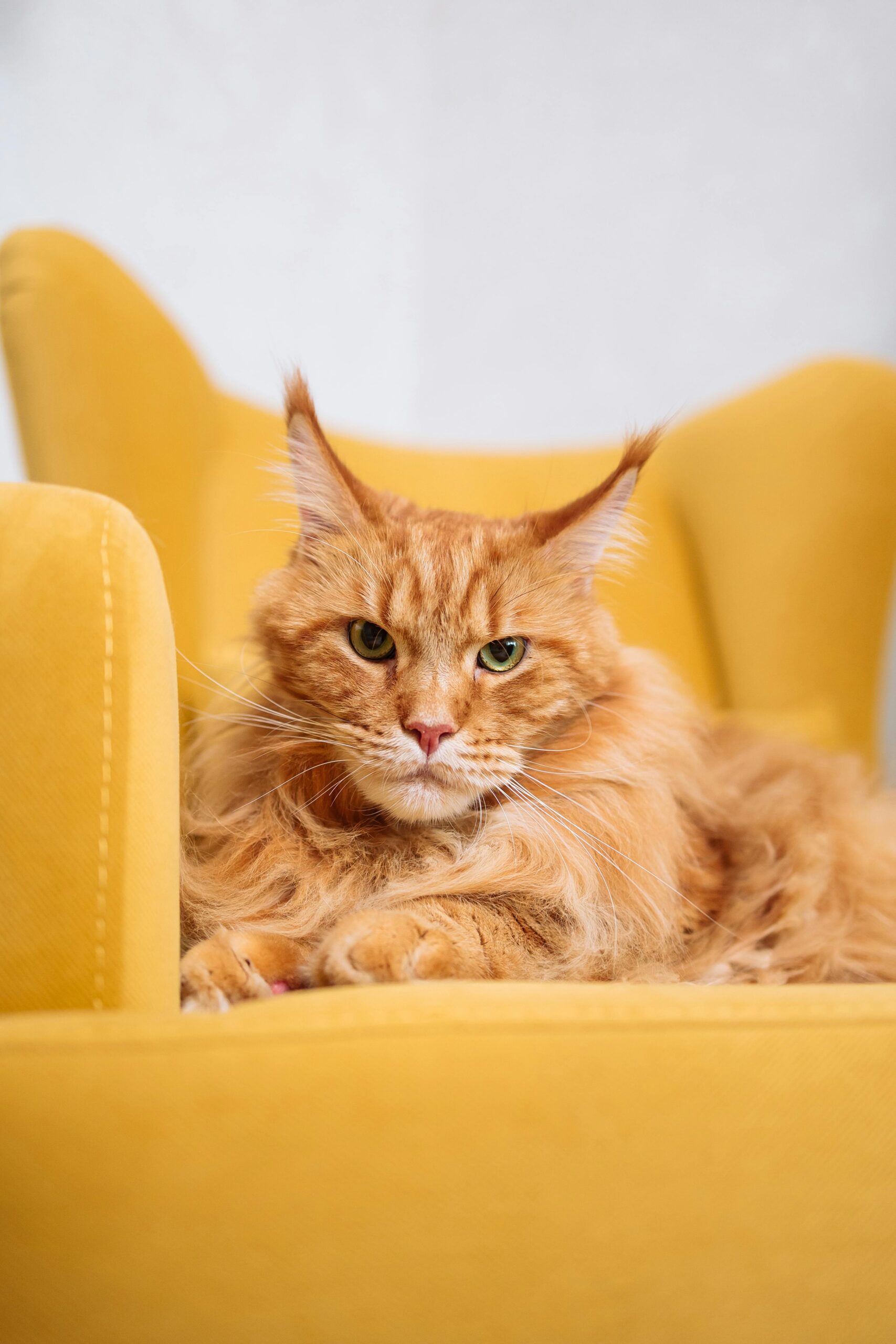
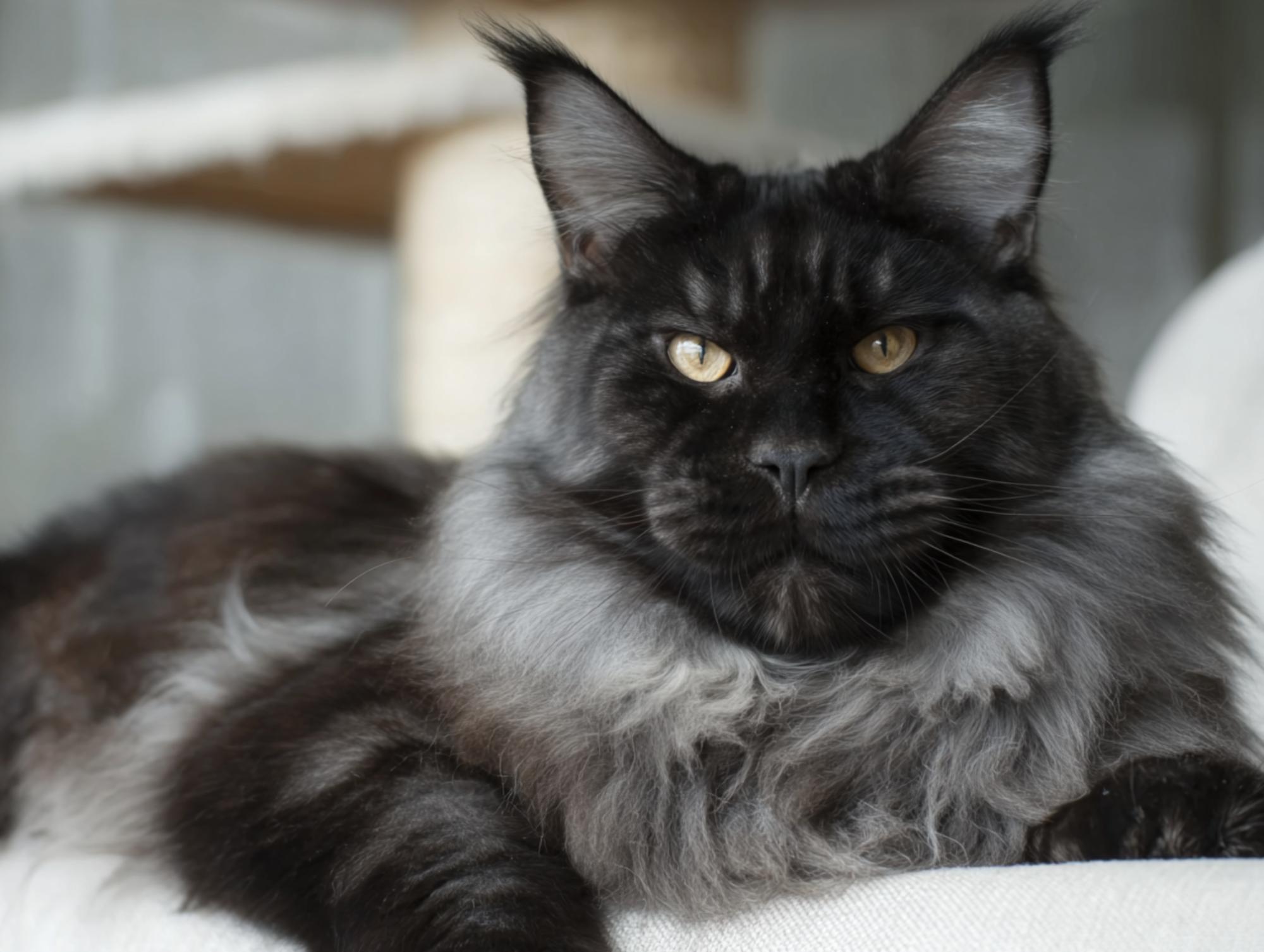
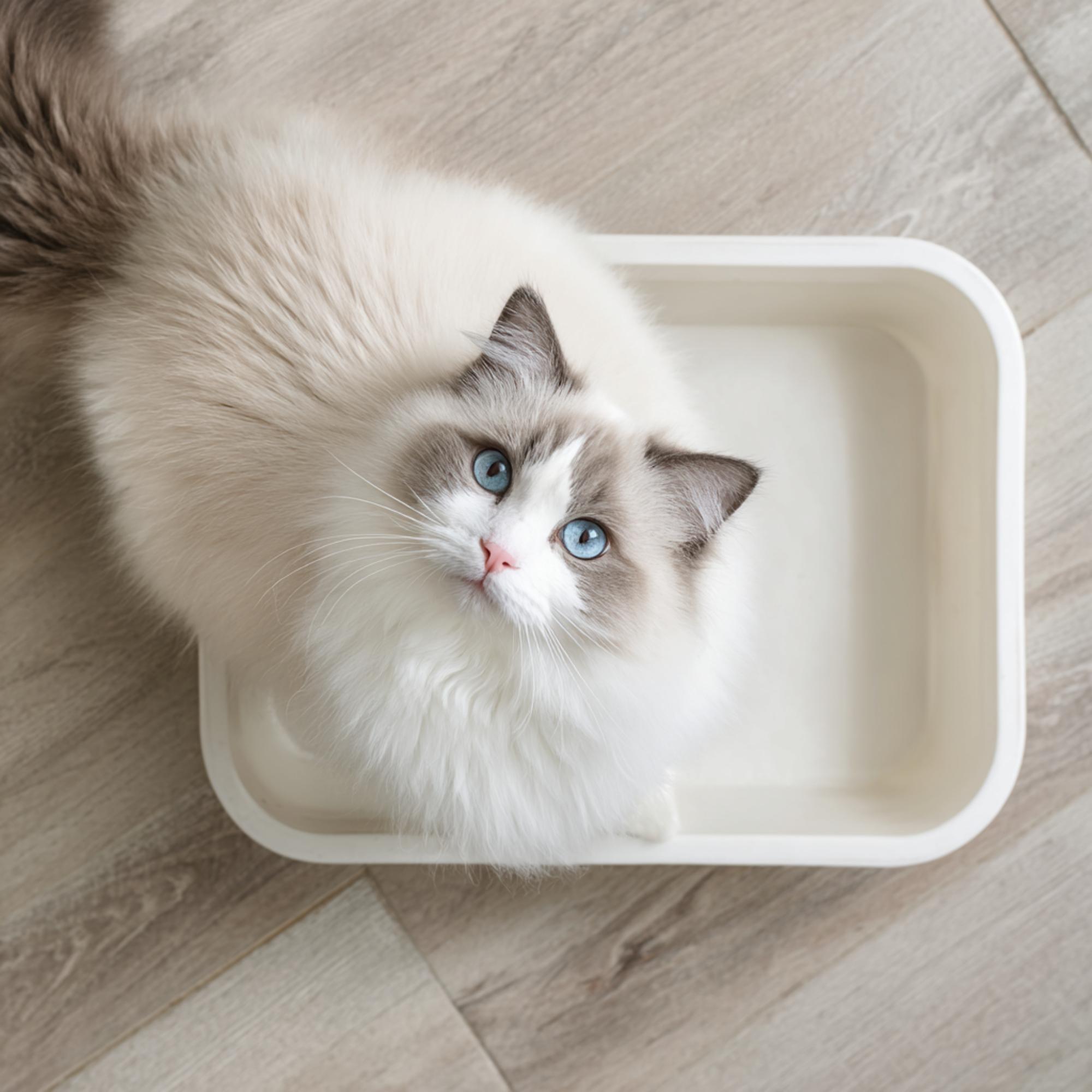
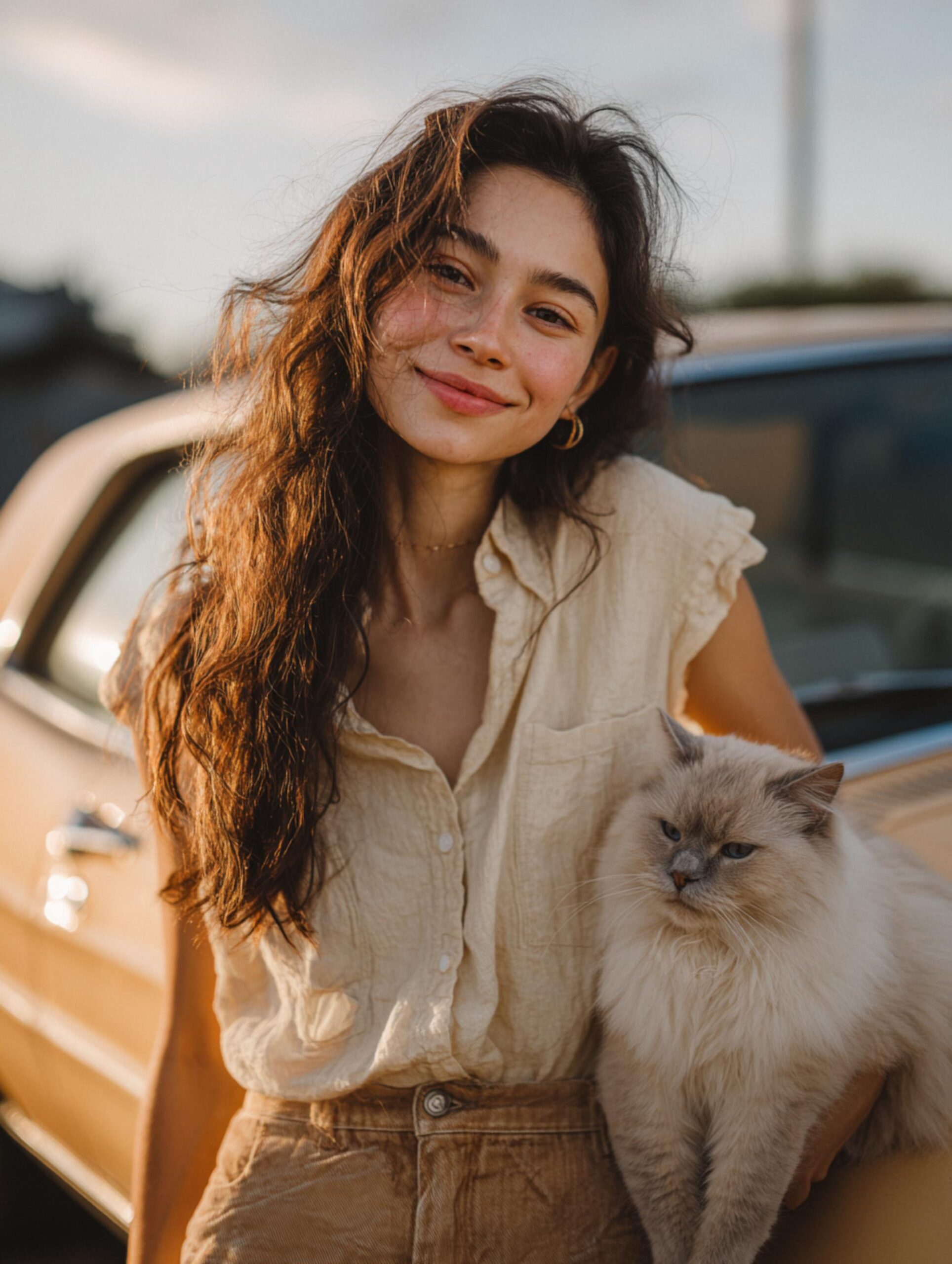
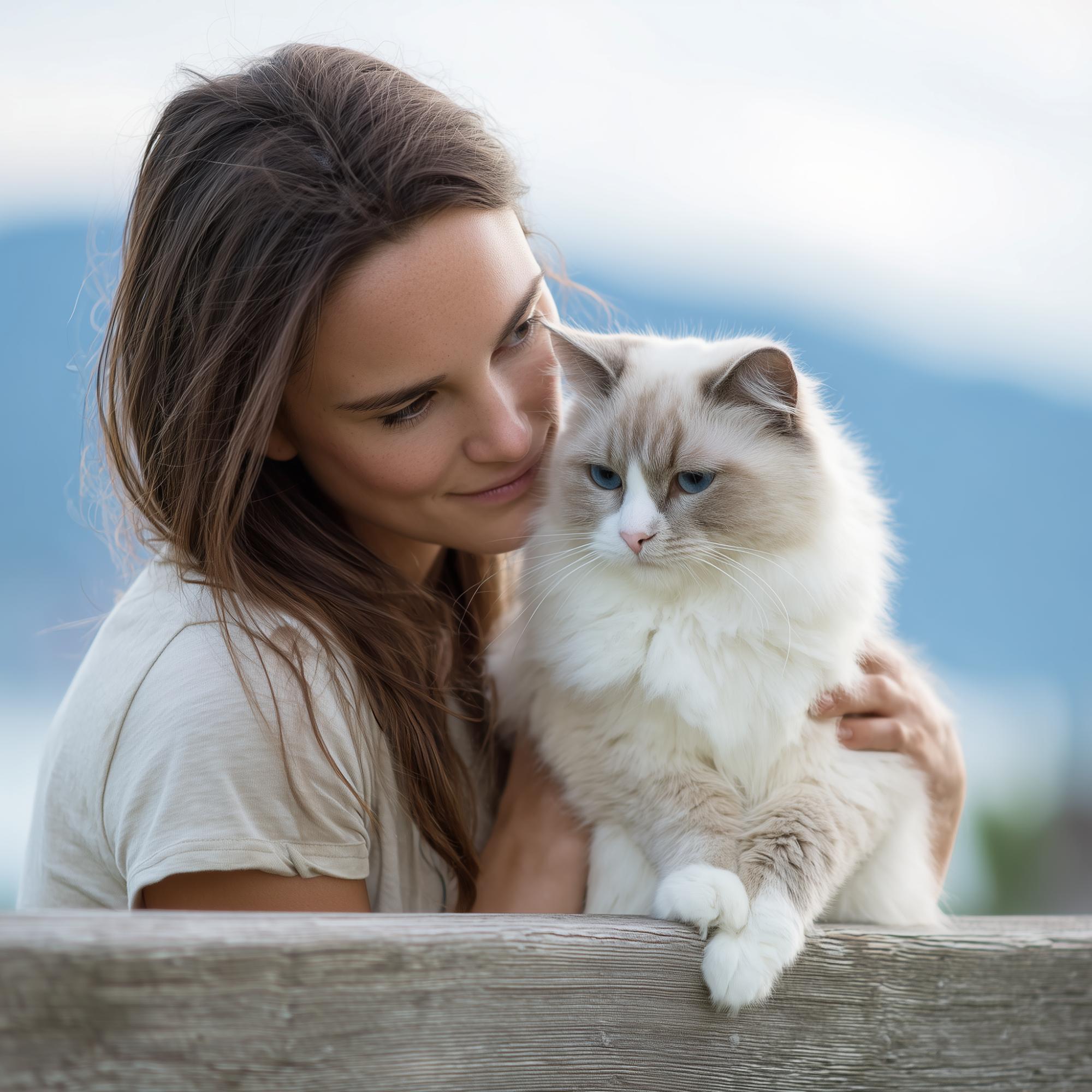
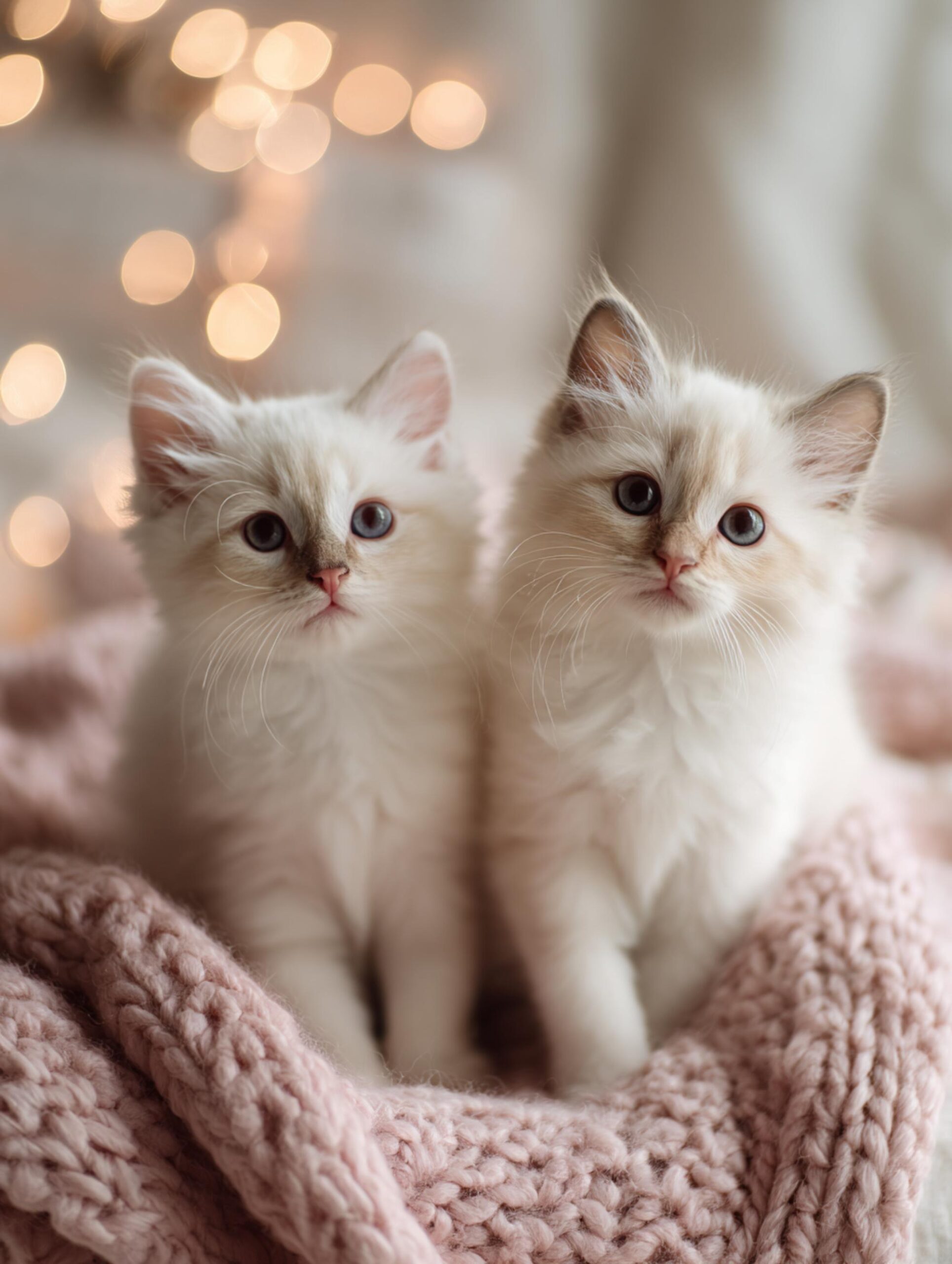
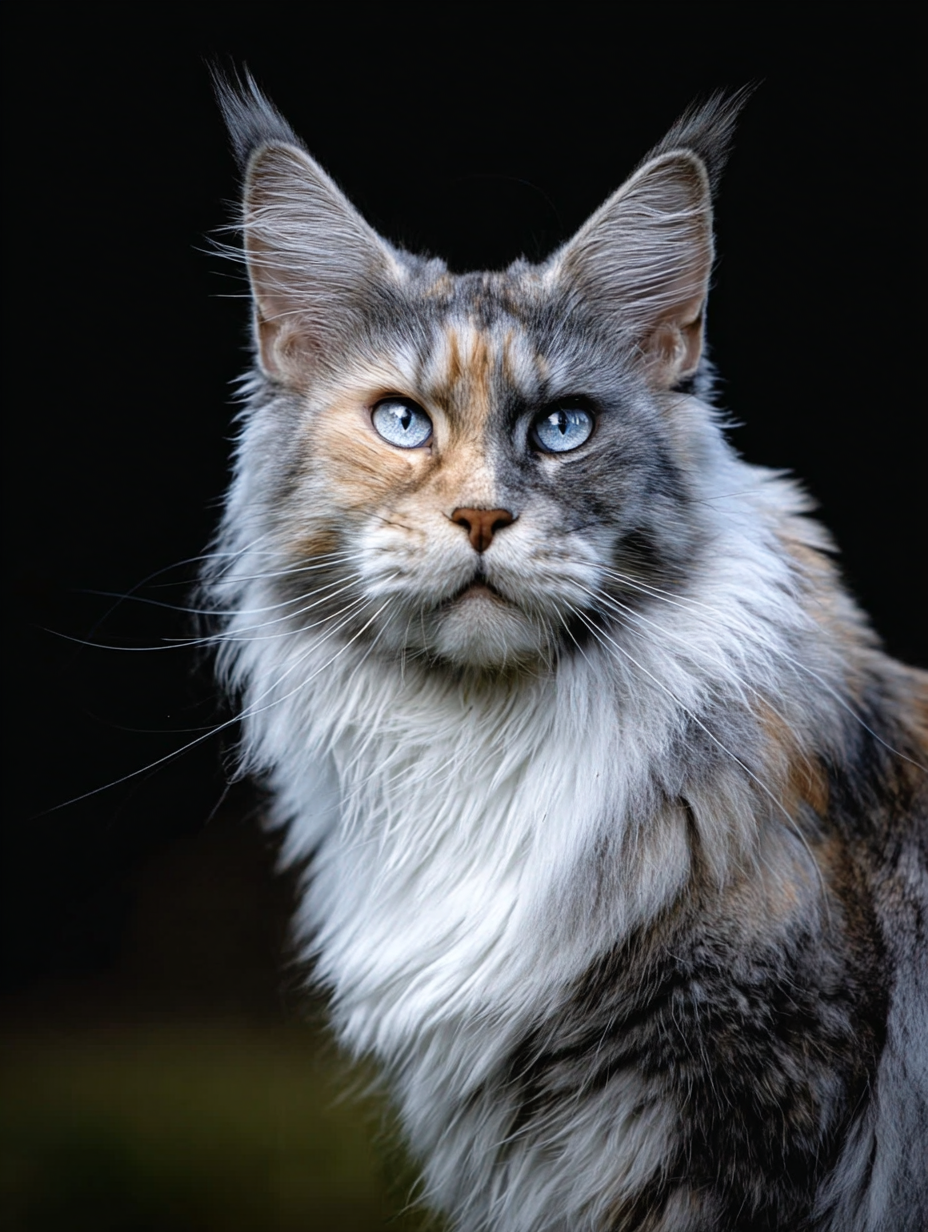
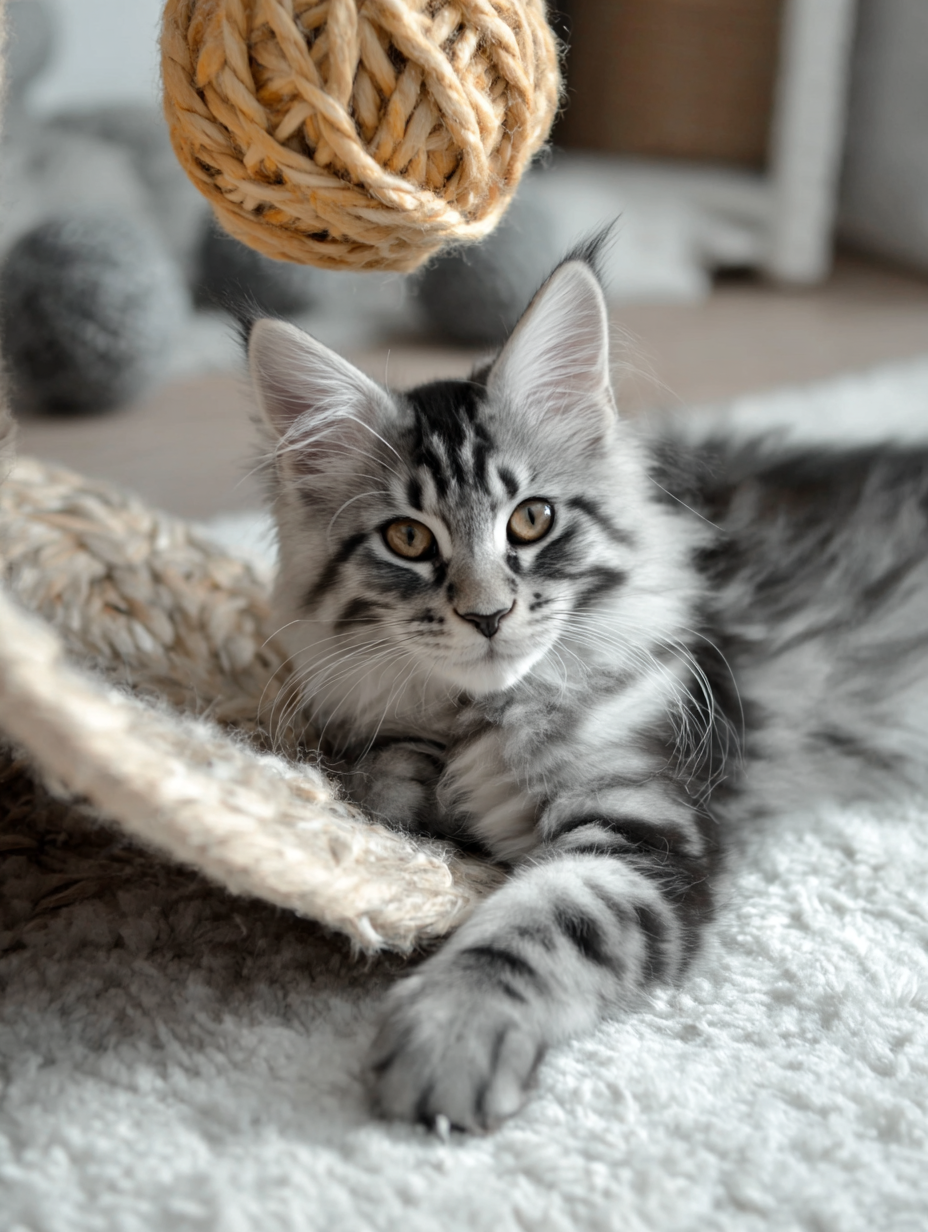
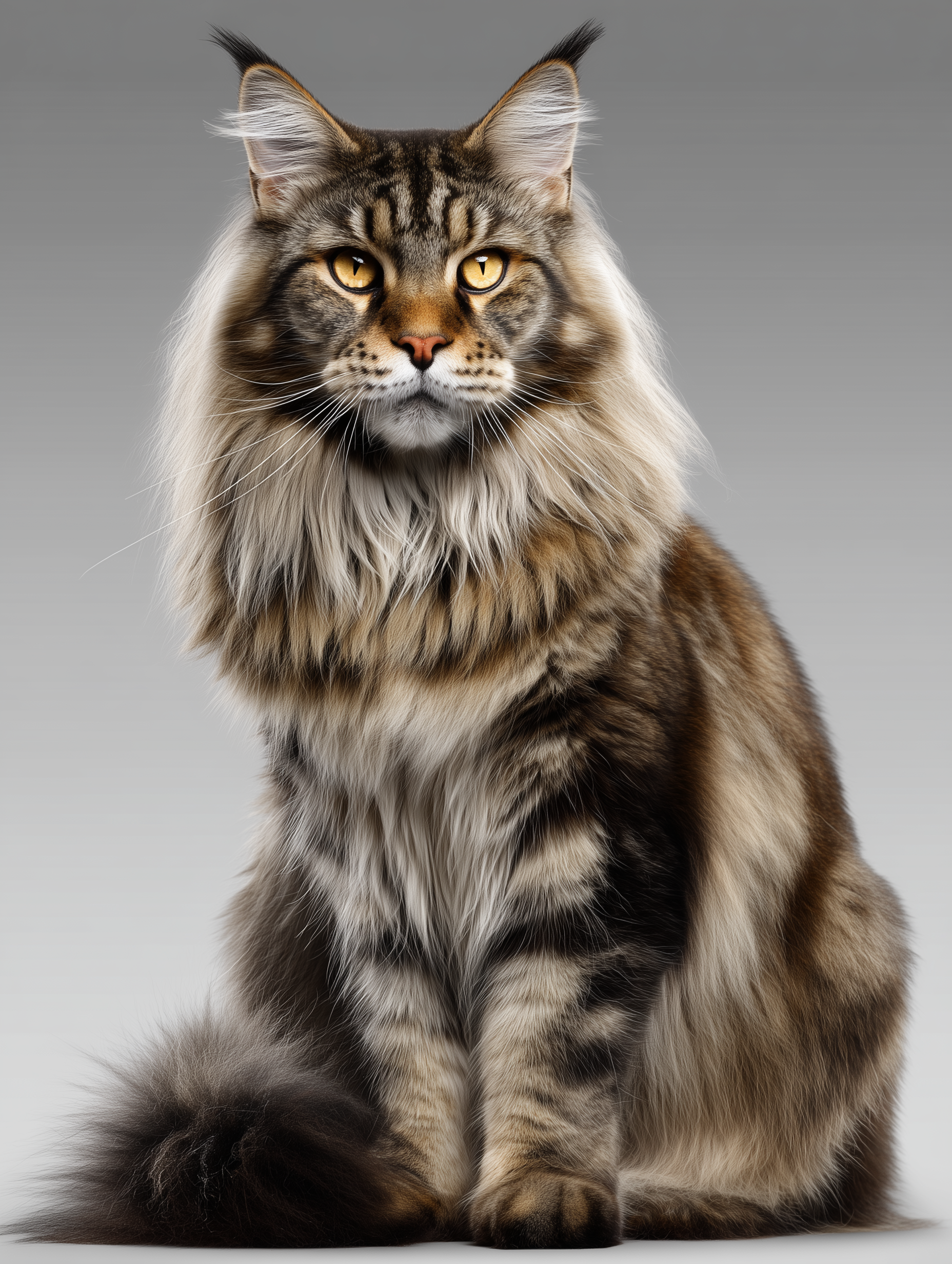
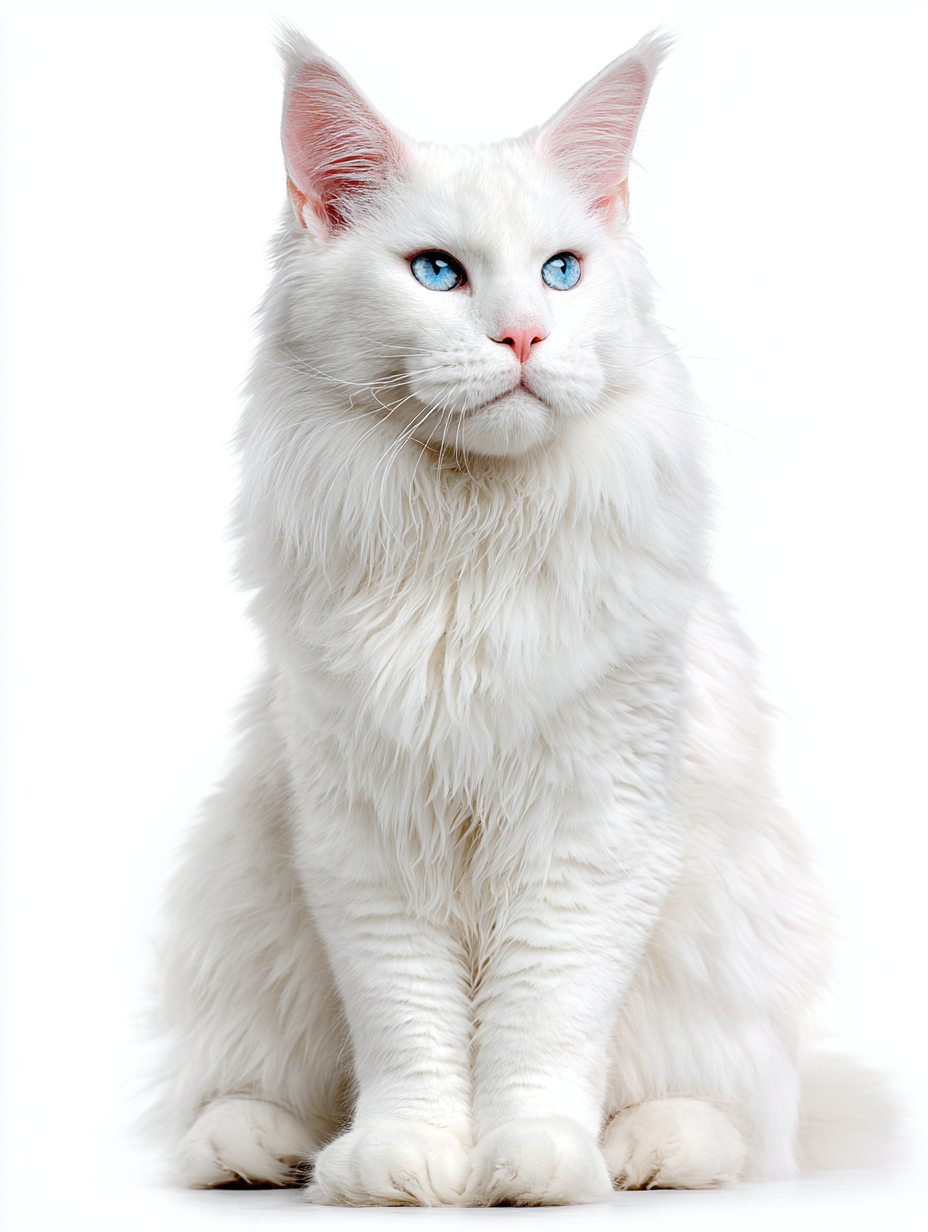
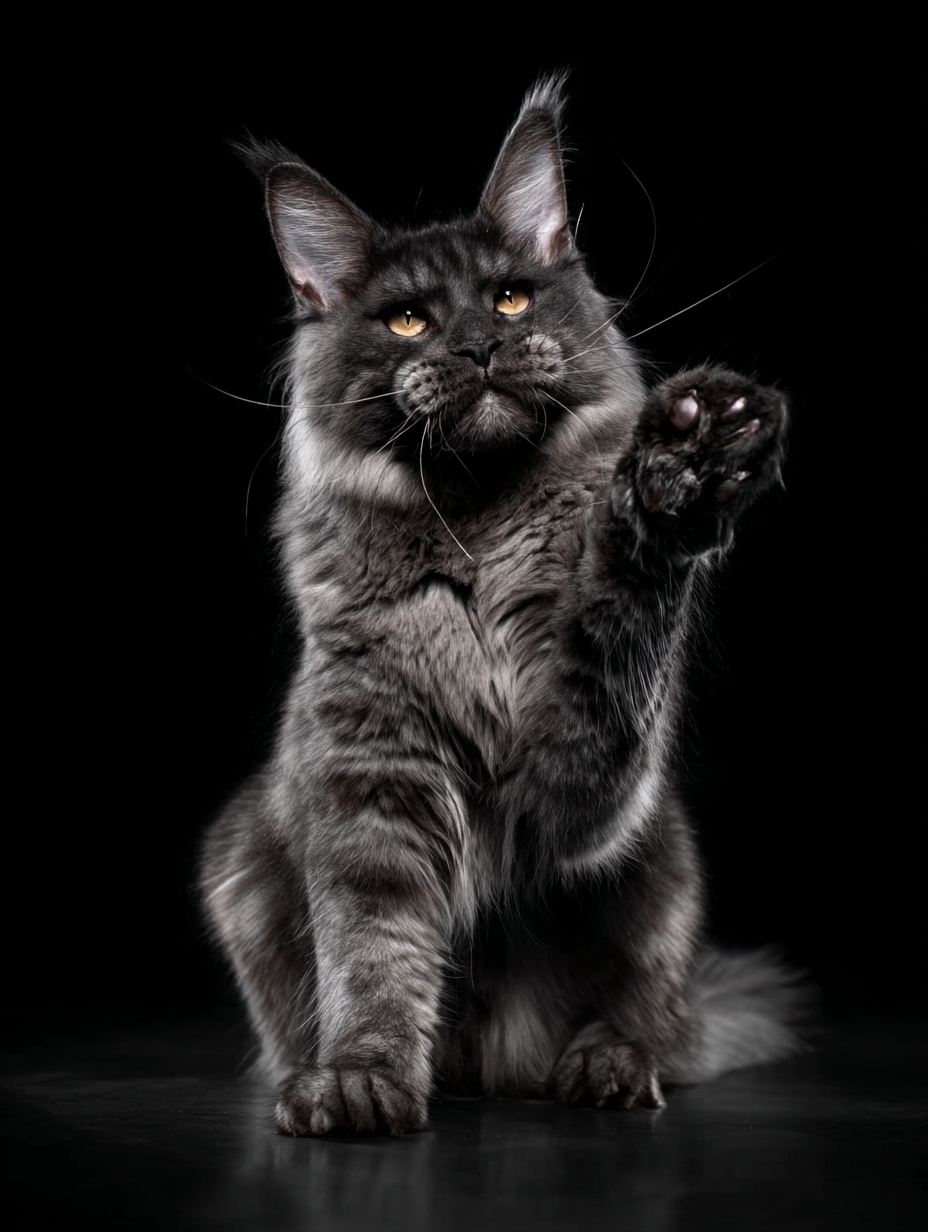
Read the Comments +